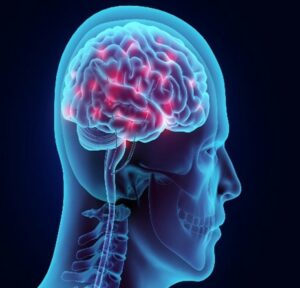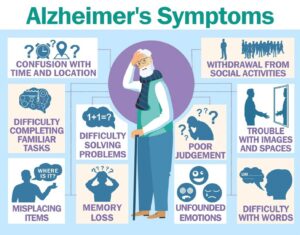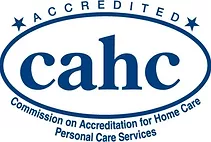Alzheimer’s and Brain Awareness Month is observed in June as an opportunity to spread the word about and discuss Alzheimer’s disease and other dementias. Throughout the month, the Alzheimer’s Association encourages people around the globe to support the movement by wearing purple and training their brains to fight the disease.
ALZHEIMER’S AND BRAIN AWARENESS MONTH TIMELINE
1910
Alzheimer’s disease is named after Alois Alzheimer but by his senior colleague, psychiatrist Emil Kraepelin who used the term ‘Alzheimer’s disease’ in his book “Psychiatrie.”
1931

The electron microscope is invented by Germans Max Knoll and Ernst Ruska, which can magnify up to one million times, allowing researchers to study the brain in more detail.
1980
The Alzheimer’s Association, the leading organization in Alzheimer’s care and research, is established with Mr. Jerome H. Stone as the founding president.
1993
The Food and Drug Administration (FDA) approves tacrine (Cognex) as the first drug targeted specifically towards Alzheimer’s.
Alzheimer’s disease is a degenerative brain disease and the most common form of dementia. Dementia is not a specific disease. It’s an overall term that describes a group of symptoms. There are currently 6.7 million Americans age 65 and older are living with Alzheimer’s in 2023. Seventy-three percent are age 75 or older. Alzheimer’s disease typically progresses slowly in three stages: early, middle and late (sometimes referred to as mild, moderate and severe in a medical context). Since Alzheimer’s affects people in different ways, each person may experience dementia symptoms — or progress through the stages differently which can last for years.
The stages below provide an overall idea of how abilities change once symptoms appear and should only be used as a general guide. Dementia is a general term to describe the symptoms of mental decline that accompany Alzheimer’s and other brain diseases.

The stages are separated into three categories: mild Alzheimer’s disease, moderate Alzheimer’s disease and severe Alzheimer’s disease. Be aware that it may be difficult to place a person with Alzheimer’s in a specific stage as stages may overlap. The symptoms of Alzheimer’s disease worsen over time, although the rate at which the disease progresses vary. On average, a person with Alzheimer’s lives four to eight years after diagnosis, but can live as long as 20 years, depending on other factors. Changes in the brain related to Alzheimer’s begin years before any signs of the disease. This time period, which can last for years, is referred to as preclinical Alzheimer’s disease.
Age is the greatest risk factor for Alzheimer’s disease, but not the only one. While some brain changes are inevitable as we age, there is a growing body of research to suggest that adopting healthy lifestyle behaviors may help our brains age healthier.
Exercise regularly — Regular cardiovascular exercise helps increase blood flow to the body and brain, and there is strong evidence that regular physical activity is linked to better memory and thinking.
Maintain a heart-healthy diet — Stick to a meal schedule full of fruits and vegetables to ensure a well-balanced diet. Some evidence suggests a healthful diet is linked to cognitive performance. The Mediterranean and DASH diets, which emphasize whole grains, green leafy vegetables, fish and berries, are linked to better cognitive functioning, and help reduce risk of heart disease as well.
Get proper sleep — Maintaining a regular, uninterrupted sleep pattern benefits physical and psychological health, and helps clear waste from the brain. Adults should get at least seven hours of sleep each night and try to keep a routine bedtime.
Stay socially and mentally active — Meaningful social engagement may support cognitive health, so stay connected with friends and family. Engage your mind by doing activities that stump you, like completing a jigsaw puzzle or playing strategy games. Or challenge yourself further by learning a new language or musical instrument.
If your aging loved one suffers from Dementia and needs help with personal care and activities of daily living in the Elizabeth, NJ area please contact Adult Alternative Home Care staff at 908-590-1759.
https://www.alz.org/alzheimers-dementia/stages
https://www.alz.org/sc/news/june-is-alzheimers-brain-awareness-month
https://nationaltoday.com/alzheimers-brain-awareness-month/
- Home Care Assistance Can Help Seniors Manage Self-Care Tasks - April 24, 2025
- The Superfood You Shouldn’t Miss - April 9, 2025
- First Home Care Visit? Here’s The Inside Scoop - April 9, 2025


